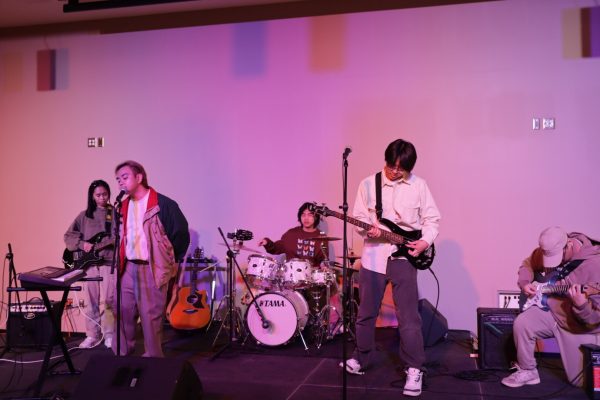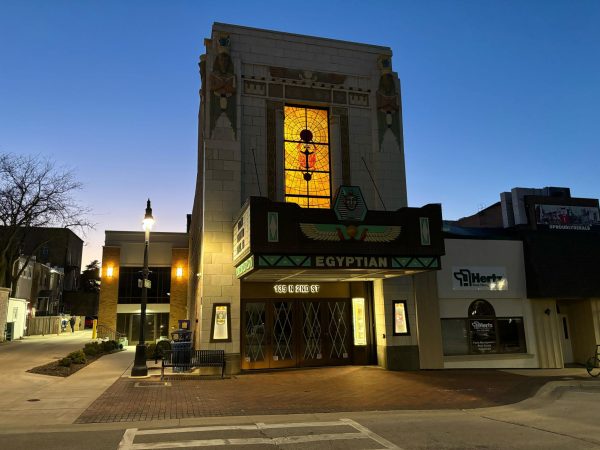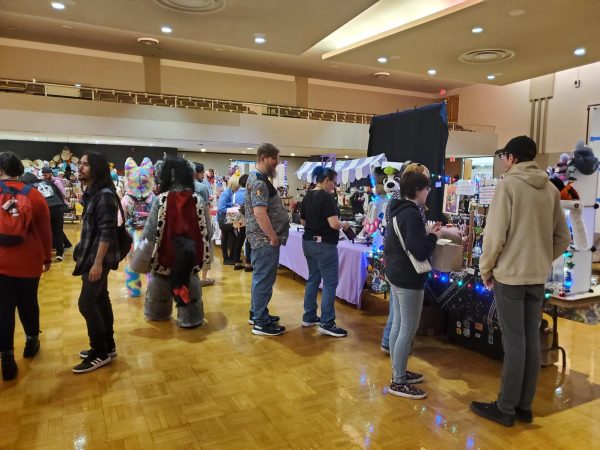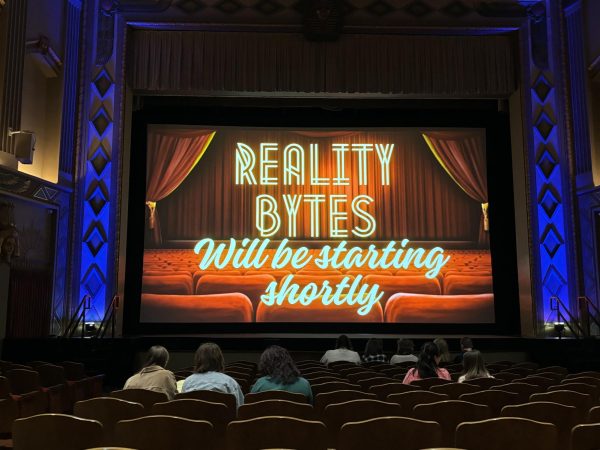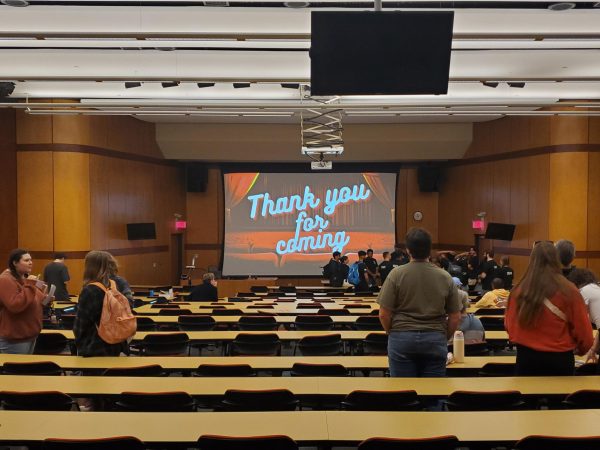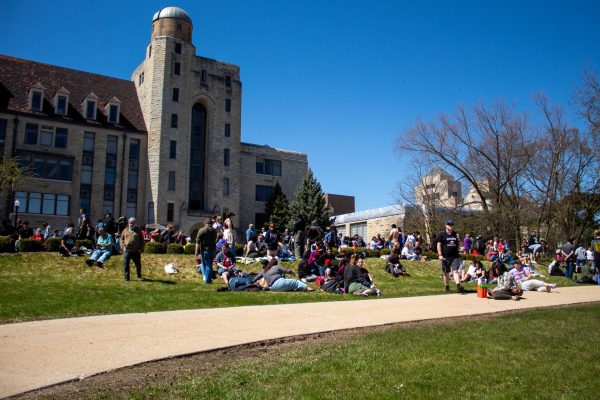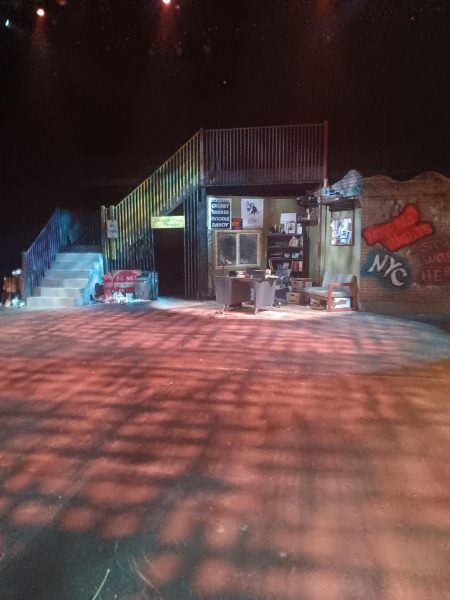Last Call for Sin
October 20, 2005
While most college students get ready to go out to the bars on a Friday night, bartenders get ready to go work. They are essential to any college town. They are the people customers depend on for advice, but for most college students the bartender doesn’t ask about their customers’ personal lives but rather if they would like their Coors Light in a bottle or on tap.
Fatty’s
1312 W. Lincoln Highway
On Oct. 11 at Fatty’s, White Sox fans fill bar stools and tables in hopes of a win in Game 1 of the American League Championship Series. The bartenders took drink orders from customers, trying to hear over the cheers resulting from every hit.
Bartender and senior marketing major Mike Stanczak said keeping your cool can be difficult when it gets busy, especially during an NIU football game.
Working in a bar, the bartenders see all types of people. One night a woman asked Stanczak if he had found a tooth because she had lost one of her false teeth. Stanczak said he thought it was an odd question.
“People don’t think of our bar as a night bar, but it gets pretty crazy sometimes,” Stanczak said.
Working as a barback, a bartender’s assistant, for a year helped prepare Stanczak for bartending. In that time, he learned how to make the drinks and how everything is organized behind the bar.
“The hard part about a college bar are the shots,” Stanczak said. “You learn a new one every night.”
The bartenders split their tips three ways, giving 15 percent to the barback.
“Sometimes you’ll get the ‘here sweetheart, here’s 20 bucks,’” bartender Vicky Catherine said. “The later the night goes on, the more and more you get hit on.”
The largest tip Catherine, who has worked at Fatty’s for nearly three years, has ever gotten was $160 for a $460 tab.
Senior English major Ryan Everaert may best sum up the bartending experience.
“It’s exciting, you get to meet fun people – normally intoxicated ones,” Everaert said.
Starbusters Bar and Grill
930 Pappas Drive
Having waitressed since she was 16 years old, Nora Balayti is used to the fast pace of restaurants and bars.
“The faster you are, the fewer bartenders you need, and the less you have to split,” said Balayti, a senior fine arts major and bartender at Starbusters.
Dealing with the drunk and unruly customers can be the most difficult part of the job, Balayti said.
“You just want to jump across the bar and slap them sometimes and you can’t,” Balayti said. “You always have to be nice to people.”
Sometimes it is the customers the bartenders know who are the most annoying of all.
“Anybody who knows your name, anytime they want a drink, they think they can just yell out your name and you’re going to drop whatever you’re doing.” Balayti said.
One of Balayti’s best tips came when she was not even working. Balayti was at Starbusters with some friends on a Tuesday night and one of her regulars came in. He told her to have a good time and handed her $40.
“I’m kind of his therapist when he comes in,” Balayti said.
The longer you work at a bar the more regulars you acquire, Balayti said.
Giving advice to customers is not nearly as bad as when the customers make a pass at you, she said.
“Your job is to be nice to them,” Balayti said. “Sometimes they mistake that for you being interested in them.”
Working at the bar, one sees plenty of people do things they may not do when sober. Balayti recalled one night when a women who was dancing on the bar slipped and fell.
“When she slipped and fell, I lost it,” Balayti said. “That’s what you get. You’re on the bar for attention. She got bad attention.”
Junior journalism major Adam Bohr started at Starbusters in December as a bouncer.
“It was horrible,” Bohr said. “I don’t have the muscle to throw people around.”
Being a barback allowed Bohr to be behind the bar and learn more about bartending while making more money. Bartending is faster paced and more social.
“You make a lot of money,” Bohr said. “It pays the bills, to say the least.”
Bohr said working busy weekends can be stressful.
“You get a little overwhelmed,” Bohr said. “From 11 p.m. to 1 a.m. you really push yourself.”
On the weekends, when the bar closes at 2 a.m., the bartenders usually get out around 3 a.m.
The register needs to be balanced and a bottle count needs to be done, Bohr said.
The amount of alcohol used needs to match up to the profits. If a bartender is short at closing, the loss comes out of his or her own pocket. A short register can occur when a drink is not rung up correctly.
“You’re ringing a drink every two minutes,” Bohr said. “You’re flying. It’s really easy to mess things up.”
Otto’s Niteclub
118 E. Lincoln Highway
College students are known for being bad tippers. Junior public administration major James Kinsey said tips vary depending on the bands playing at Otto’s.
“Some college kids are all right, and some are just broke and trying to get drunk,” Kinsey said.
Kinsey said bartenders are more critical of other bartenders when tipping.
“You know what it takes,” Kinsey said. “All in all, I think you tip better.”
Most people start off as barbacks at Otto’s, although the job has a high turnover, Kinsey said,
“When you first start off, the new guys get the nasty stuff,” Kinsey said. “If you can tough it out, then you eventually start making more money.”
Cleaning up can be a tough part of the job.
“The bathrooms just get repulsive,” Kinsey said. “The girls’ bathroom is the worst.”
One night Kinsey recalled a man urinating on the front of the bar. One customer said, “Hey, we got a little guy over here.”
“Nobody could see him because he was so short,” Kinsey said.
Bartender and DeKalb resident Carie Pasenelli said Otto’s sees customers from all walks of life. One regular customer walks around playing her harmonica when she is inebriated, Pasenelli said.
“The drunken fights never cease to amaze me,” Pasenelli said. “That’s one of the reasons I’m still working here.”
The balance between school and bartending can be stressful. The late nights and early classes do not mix.
“I’d get out at four in the morning, still have homework and try to get three or four hours of sleep,” Kinsey said.



